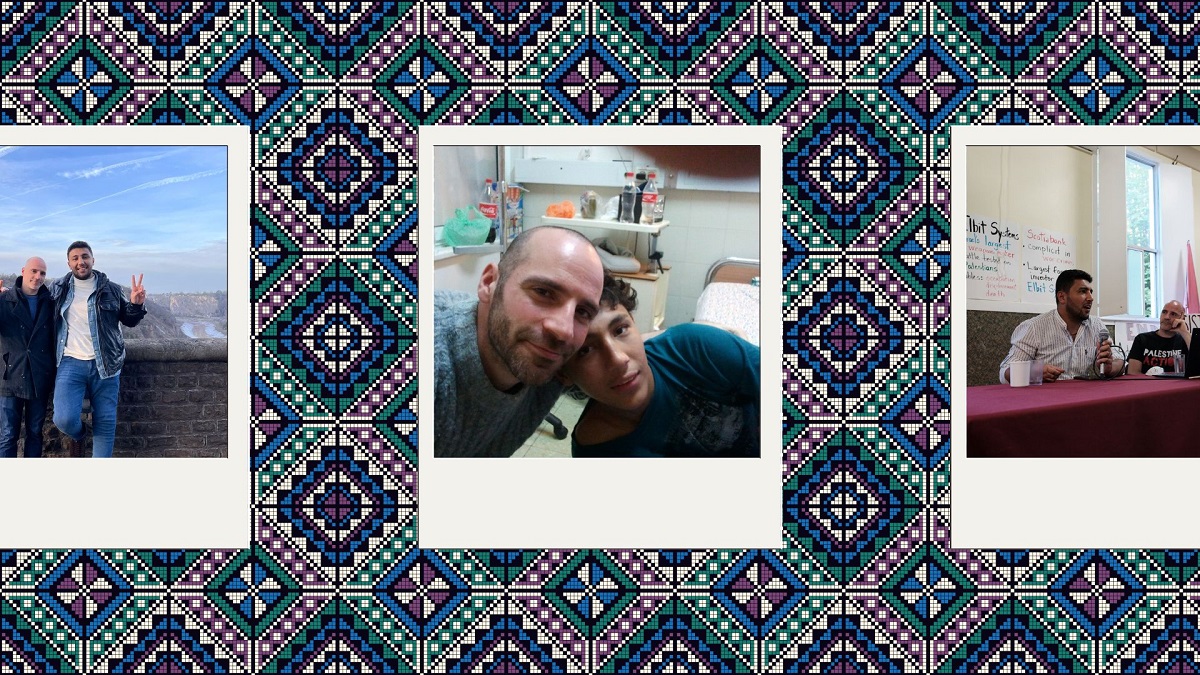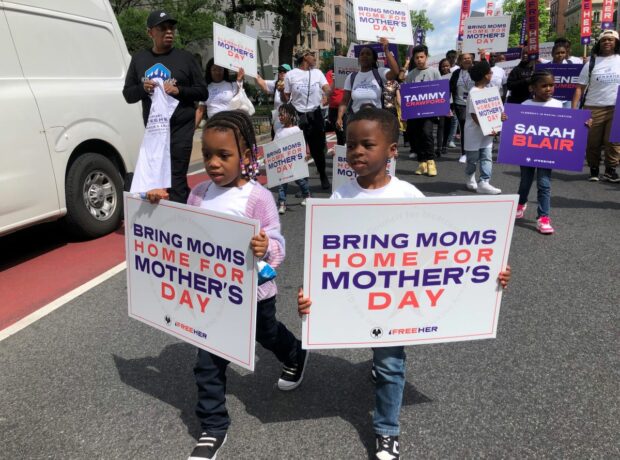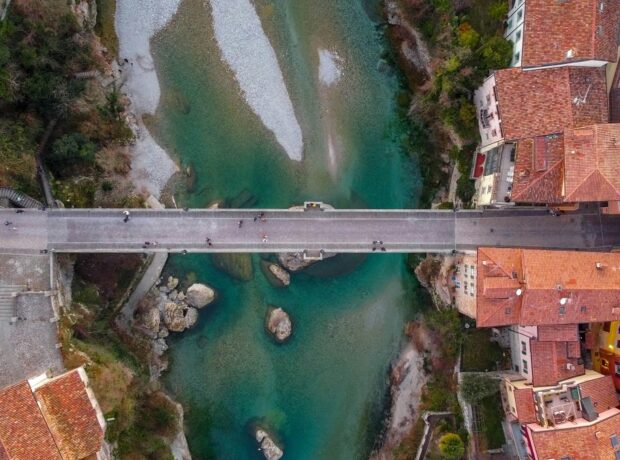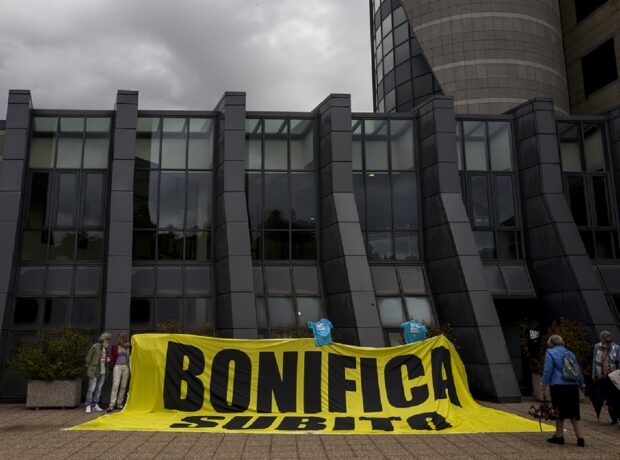At 15 years old, Mohammed Al Zaza suffered life-changing injuries when the Israeli army bombed his home in Gaza City. Now, 13 years later and from the other side of the world, he is once again watching bombs fall on Gaza and waiting for news from his family.
Mohammed Al Zaza has had more than 24 surgeries in 13 years. He’s had skin grafts for third degree burns, reconstructive plastic surgery, a knee replacement and surgery for broken bones. Almost no part of his body was left untouched by the bomb which hit him in 2011, when he was almost 15 years old. He is now 27.
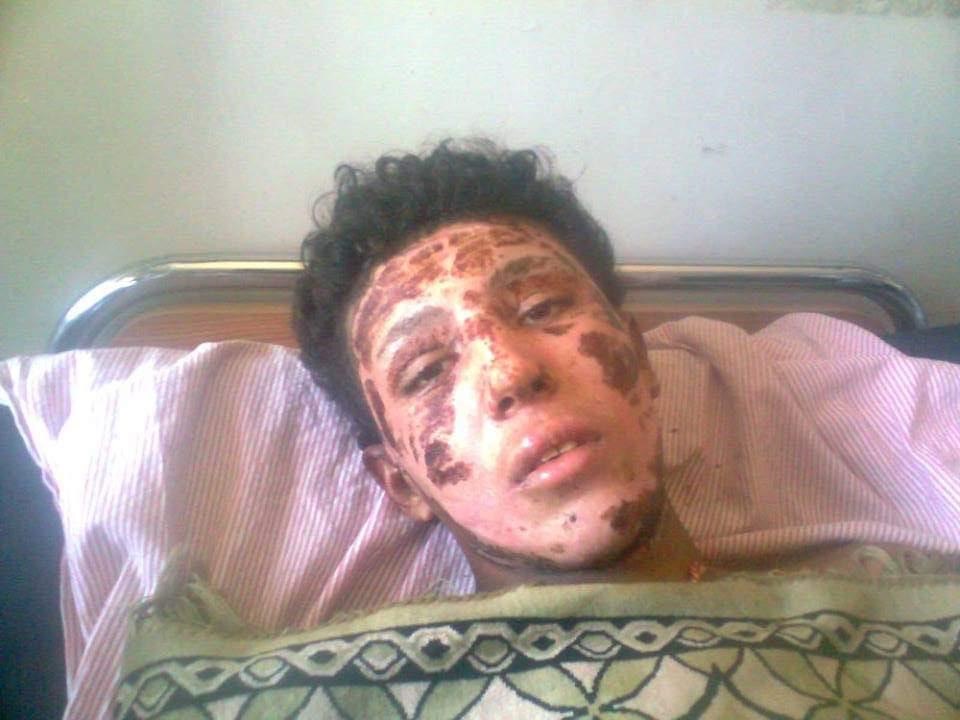
Mohammed Al Zaza as a teenager, just after the attack
In some ways, Al Zaza counts himself lucky. “Not many people survive these bombs,” he told me from the café of the Palestine Museum in Bristol.
He says there were days when he didn’t think he’d make it. And some days when he didn’t want to make it. But he’s still here, surviving.
A long way from Gaza
Al Zaza lives in Vancouver now, more than 10,000 km from his hometown in Gaza City. He moved to Canada in 2023 with support from friends and sponsorship from the Muslim Association of Canada and Independent Jewish Voices.
He says he never expected to live on the other side of the world, nor did he expect to end up in Bristol on this grey winter’s day. But his growing involvement with solidarity movements for Palestine, and his close friendship with an Israeli dissident, have brought him to unexpected places.
Al Zaza is in Bristol for a court case on the day that I meet him, and he’s having to change his travel plans because he’s experiencing increasing pain and needs to have urgent surgery. But these are not the biggest worries on his mind.
His principal concern right now is his family, who he only hears from very occasionally when he speaks to his dad on the phone. His parents are still alive, sheltering in the north of the strip.
Al Zaza’s brother – who has a wife and two children – is still missing after a bomb hit their apartment block. Along with several other relatives, he’s been presumed dead for a while now.
Al Zaza’s brother is one of thousands still potentially trapped under the rubble in Gaza. The death toll stands at over 36,000 people after eight months of relentless bombardment. Israeli airstrikes on the strip have killed women and children, hit residential buildings and hospitals, and targeted foreign and local aid workers. Most recently, Israel attacked Rafah, a city in the south of the strip, killing dozens in their encampment of makeshift shelters, despite the area being marked a “safe zone”.
The Gaza strip is a narrow area of land about 25 miles long, 4-8 miles wide and as densely populated as London. The area is home to around 2.3 million Palestinians, many of them displaced by Israel in 1948 and 1967. Most of them have recently been forced into camps in the south of the strip, where severe overcrowding is spreading preventable diseases as bombs still rain down.
Amnesty International has warned Palestinians are facing “imminent risk of genocide” in Gaza, and that Israel is failing to take “even the bare minimum steps” to comply with a ruling made by the International Court of Justice in January. Talks over a truce saw Hamas accept a proposed ceasefire deal that Israel then rejected.
The frequent communications blackouts have made it difficult for Al Zaza to get in touch with his family. And regular and lengthy power shortages mean charging phones is both a challenge and of lower priority for his family and other Gazans, as famine looms and aid missions are regularly blocked from entering by Israel.
For Al Zaza, waiting for news is agony. But seven years of living outside Gaza, during airstrikes and attacks on protesters, have forced him to be patient.
And there was a time when those horrors were his reality too.
Life changing injuries
It’s August 2011, and Al Zaza is almost 15. The mid-summer heat is beating off the buildings in his densely packed neighbourhood east of Gaza City. It’s Ramadan, so he’s been fasting all day. He’s hungry by this point.
Forty-five minutes before iftar, when he and other fasting Muslims will eat their first meal of the day, Al Zaza goes outside to play with his cousin Ibrahim. The sun is going down.
The missile comes without warning. It hits the boys where they are playing, just metres away from Al Wafa hospital.
Al Zaza and Ibrahim are rushed to hospital, but they are not expected to survive. Ibrahim has lost all four of his limbs, and Al Zaza is covered in third degree burns. After nine days in intensive care, doctors and the Palestinian authorities negotiate a special permit to transfer them to an Israeli hospital.
Hospitals in Gaza can’t always meet their patients’ needs, and many cancer patients must request a special permit to get treatment in specialised hospitals in Israel or the occupied West Bank. But getting permission isn’t easy, especially for non-cancer patients.
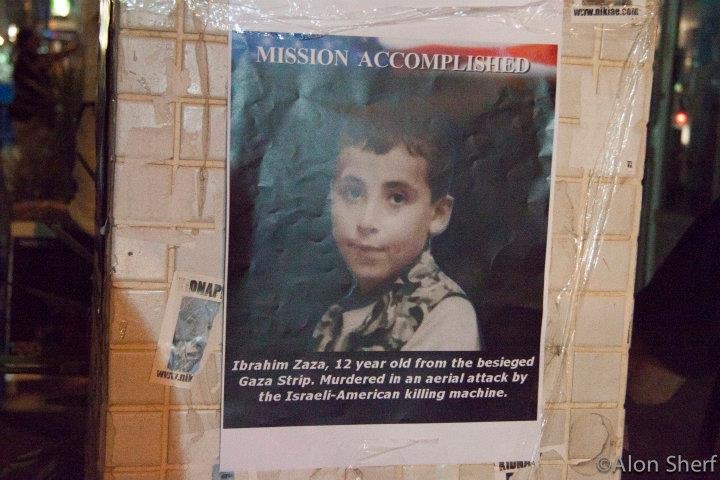
Ibrahim, Mohammed’s cousin
Accompanied by their fathers, the two boys are allowed outside the strip for the first time, and are admitted to a hospital just south of Tel Aviv. A few days after the transfer, Ibrahim succumbs to his injuries and passes away. He is just 12 years old.
Looking back on his time in hospital, Al Zaza tells me he spent much of the first year in and out of consciousness. He had no idea about what had happened to Ibrahim.
“They told me he’d improved and gone back to Gaza,” Al Zaza said, explaining that his family and the hospital staff thought the news would cause him too much distress and impact his recovery.
When Al Zaza finally found out by accident 18 months later, he was devastated. “I spent a week crying and didn’t want to continue treatment,” he said. “They tied me to a bed so I couldn’t do anything to hurt myself.”
Al Zaza was in constant pain, far from home, and in the territory of the occupying state. But he had supporters. Some Israeli activists had seen Al Zaza’s story on the news and went to visit him in hospital.
One of the visitors was Ronnie Barkan, an Israeli dissident and conscientious objector, who previously served in the Israel Defense Forces. Barkan went to visit Al Zaza soon after he was admitted, and he went back nearly every day. “He was with me all this time,” said Al Zaza.
At first, communication was laboured. Barkan could speak basic Arabic, but Al Zaza couldn’t speak any Hebrew. Over time, they picked up words from each other. “After around six months, I could understand a bit of Hebrew,” said Al Zaza.
Eight months after he was first admitted to hospital, Al Zaza was prescribed intensive rehabilitation. But neither Israel nor the Palestinian authorities would fund it. “Mohammed’s doctor said if he was sent back to Gaza, he would be wheelchair bound and wouldn’t walk again,” Barkan tells me in a voice message. So, he and some others helped Al Zaza to find private funding for his rehabilitation in Jerusalem.
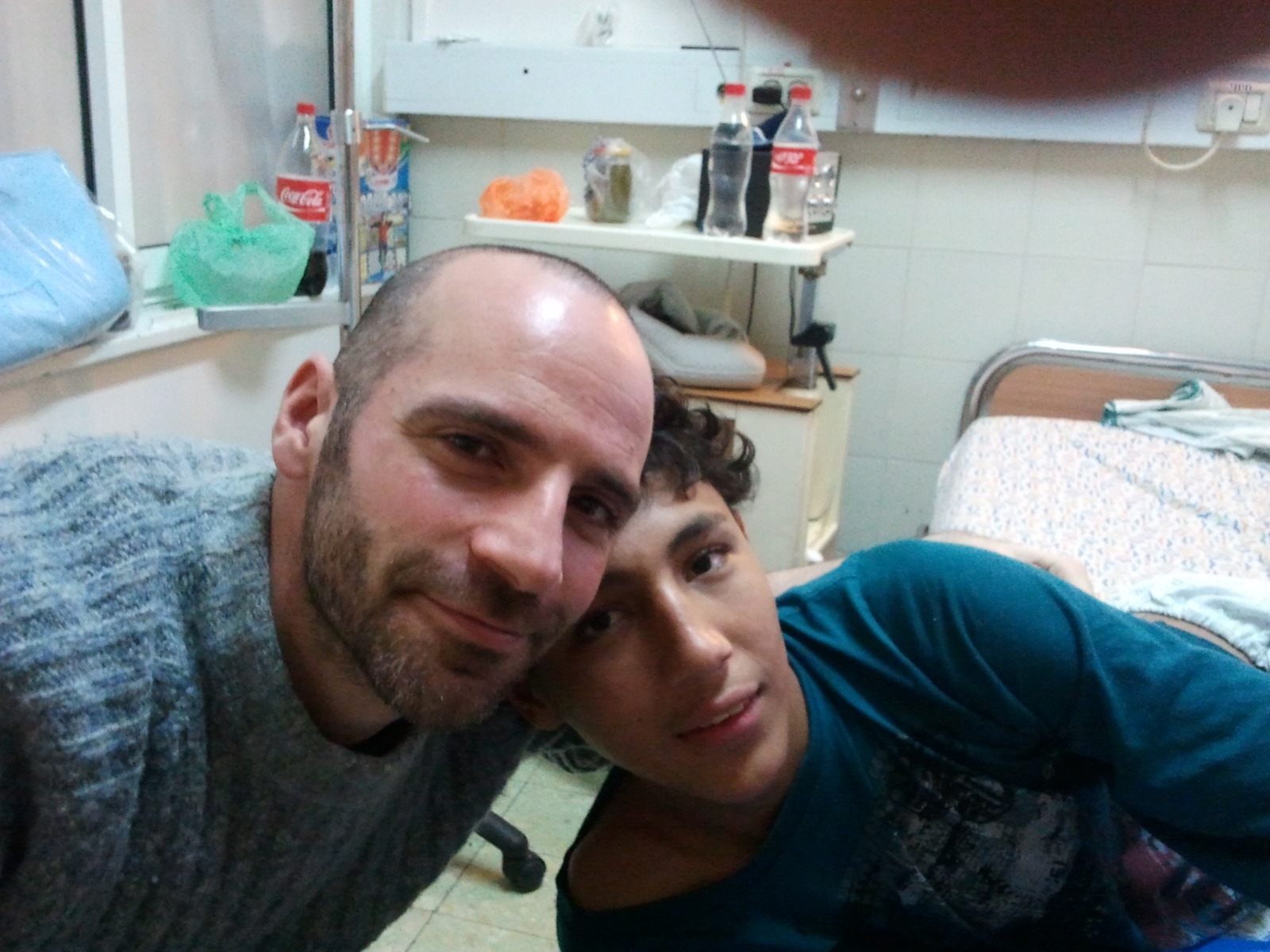
Ronnie Barkan and Mohammed Al Zaza
It was the start of a friendship that would go on to be foundational for both men.
Escape through Turkey
After more than a year and a half in hospital, Al Zaza went back to Gaza. It was not an easy return. His family’s house was not far from the separation fence, where live ammunition and tear gas were regularly shot into Gaza from Israel. And in 2014, an airstrike destroyed his house, entire neighbourhood and the nearby hospital.
Several years passed and Al Zaza continued to suffer constant pain and complications from injuries. He had surgeries in Egypt, the West Bank and inside Israel again. But as he got older, permits became increasingly difficult to obtain.
Eventually, Al Zaza was barred from returning to Israel for further treatment. And throughout all his attempts to get there, he was increasingly targeted by Israeli authorities, who mistreated and interrogated him at checkpoints, and regularly denied him entry – despite letters of invitation from Israeli doctors and proof of appointments. Al Zaza was also continually running into problems with the Palestinian authorities, who were suspicious of the time he was spending in Israel.
Al Zaza knew he had to get out. With the support of Barkan and some other Israeli activists, he made it to Cairo in 2018, and then boarded a flight to Turkey. “He arrived in a new city at close to midnight and he didn’t know where he was going to sleep that night,” says Barkan. “That’s how important it was for him to get out of there.”
A few phone calls later, and a journalist friend of Barkan’s agreed to put Al Zaza up. Al Zaza ended up staying in Turkey for five years – four years longer than his tourist visa allowed. His insecure status meant he was constantly on edge, nervous to leave the house in case he was stopped by police and detained. He was out of Gaza, but he wasn’t safe yet.
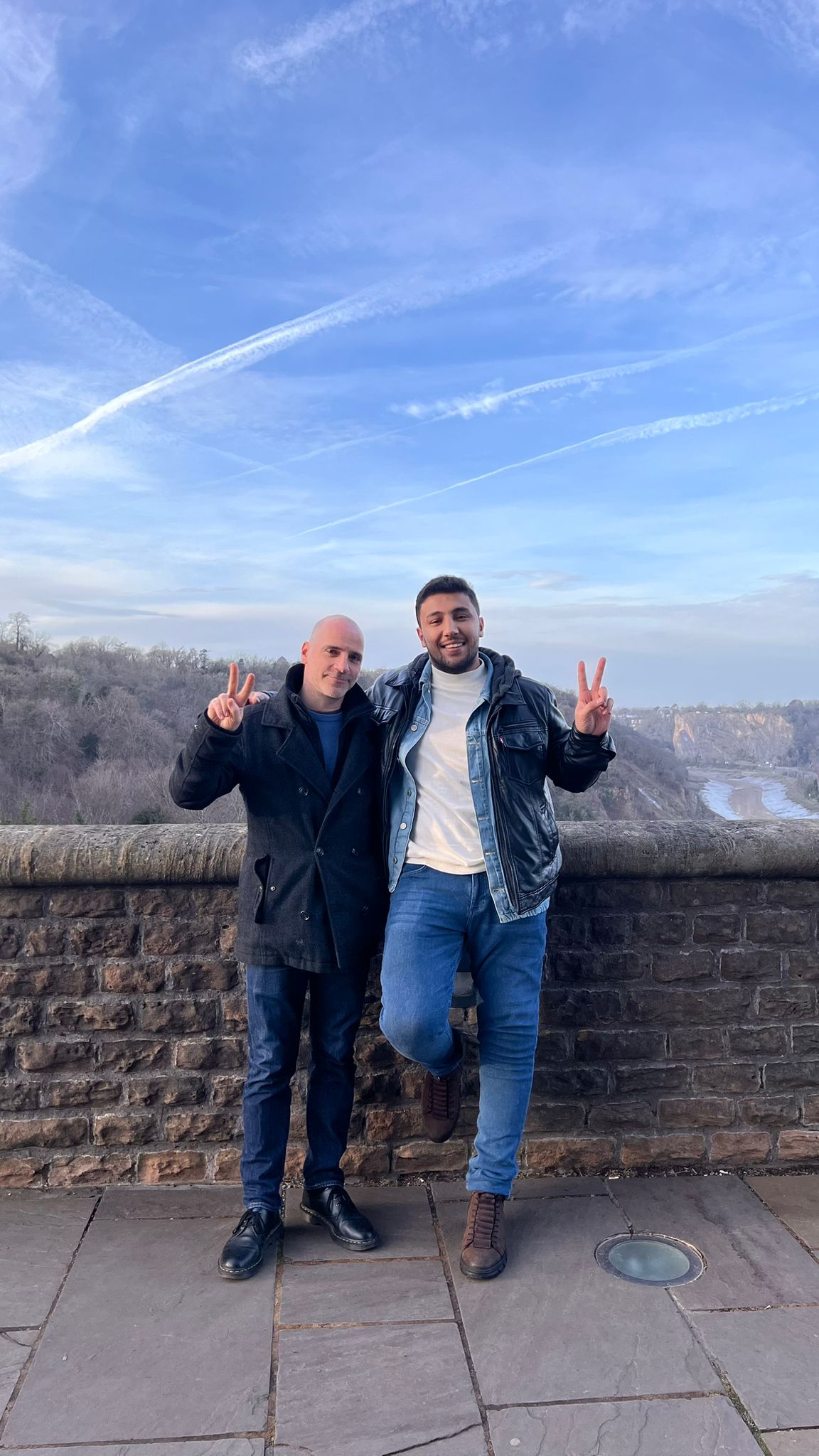
Ronnie Barkan and Mohammed Al Zaza in Bristol
Barkan and Al Zaza spoke nearly every day, and Barkan visited him in Turkey several times. They knew he couldn’t stay there permanently, so, helped by his friends and supporters, Al Zaza applied for refugee sponsorship in Canada. In May 2022, he had his interview.
On the day of the interview, Al Zaza called his friend for some reassurance. But Barkan didn’t pick up, which was unusual.
Barkan’s phone was off the hook because he had been arrested for causing damage to the Bristol offices of Elbit Systems UK, a subsidiary of Elbit Systems Ltd, an Israel-based developer of defence and military technology. He and six other activists had smashed and spray-painted the company’s building in a protest with UK-based campaign group, Palestine Action. Barkan and the others say they did it to save Palestinian lives.
“Mohammed and all drone victims, we’re doing this for you”
Elbit Systems Ltd, based in Haifa, says it is engaged in “a wide range of programs throughout the world” with “major activities” including military aircraft and helicopter systems, unmanned aircraft systems (UAS), land vehicle systems and munitions, among others.
According to the Database of Israeli Military and Security Export, Elbit Systems Ltd makes around 85% of Israel’s drones (which the manufacturer boasts are the “backbone” of the Israeli Defence Force’s unmanned aerial systems force) and up to 85% of the land-based equipment procured by Israel’s military.
The company’s subsidiary, Elbit Systems UK, has been the target of several pro-Palestine protests at its UK sites and at a military arms conference.
But Elbit UK has labelled claims that it supplies weapons to Israel’s military “grossly misleading” and said its main customers are in the UK. The company has denied supplying the Israeli military but said it has shipped products to its parent company in Israel for repairs.
Critics, including Barkan, have questioned this, claiming there is no way to entirely separate the parent company in Israel and its UK subsidiary.
In a video recorded on the day of the action at the Bristol site in 2022, Barkan says, “Mohammed and all drone victims, we’re doing this for you.”
Following his arrest, Barkan spent one month in prison on remand, and 11 months under house arrest awaiting trial. “I was off house arrest in May 2023 and the first place I went to was to Palestine, to visit my family and then to Vancouver to visit Mohammed,” he says.
In Al Zaza’s new home in Vancouver, the two caught up after more than two years apart. They also organised a protest event where they spoke in public together for the very first time.
Addressing the audience in Vancouver, Al Zaza asked, “Why did I have to get injured by a bomb to realise what life outside is actually like?”
During the trip, Barkan and Al Zaza also discussed the upcoming court case, and Barkan asked his friend if he would consider testifying for him. “There was no way whatsoever to bring in expert [witnesses], so the only way for us to bring in any testimony was to bring in character witnesses,” says Barkan.
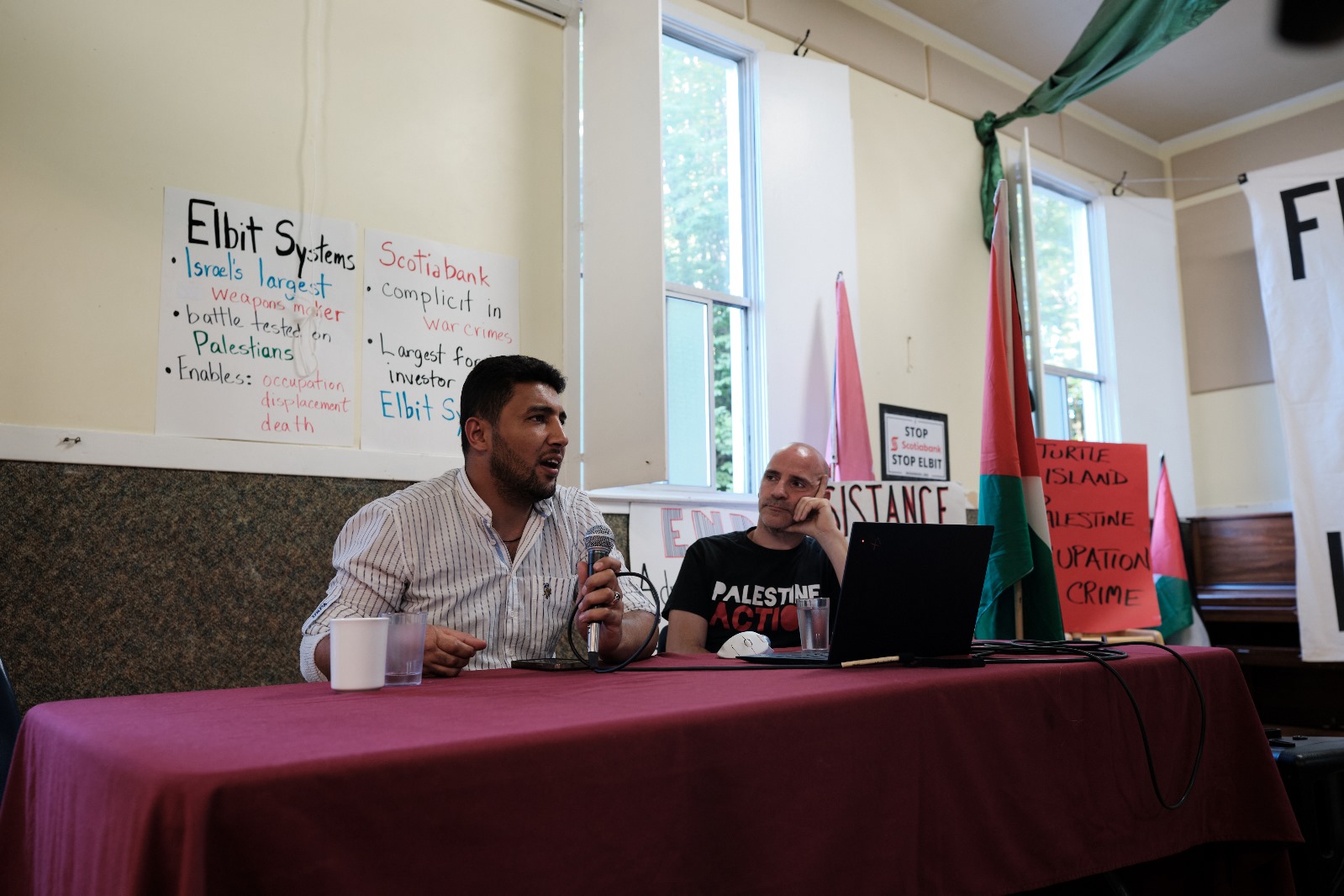
Mohammed Al Zaza and Ronnie Barkan speaking at an event in Vancouver
For Barkan, having Al Zaza as a witness not only allowed the jury to hear about his good character, it also allowed him to give them an insight into the devastating impact of drone attacks in Gaza.
And for Al Zaza, it was an opportunity to speak out about the loss of his cousin, and the life changing injuries he had suffered. It was also a chance to support his friend, who had done so much for him. “Anything I do for him is nothing compared to how he helped me,” Al Zaza says of Barkan. “He changed my life.”
But when he was called to the stand, Al Zaza wasn’t asked about his experience in Gaza. “They asked me how I met Ronnie, and I said it was in hospital,” says Al Zaza. “I wanted them to ask what happened to me.”
He wasn’t going to let the opportunity slip away so easily.
“I told them I was in hospital because Israel bombed me,” he said. “They asked very quickly but I managed to get my point across. I needed to explain why I was there.”
Barkan says people in the gallery were “weeping” when Al Zaza told his story. And while he says the jury didn’t show much emotion throughout the trial, they did respond to Al Zaza. “It was very emotional to hear him speak, seeing him taking the stand,” says Barkan.
Al Zaza says he’s not sure how his story was received, but that he feels fortunate that he could share it, when so many can’t. “It was a chance to speak.”
Closing the circle
The ‘Elbit seven’ were convicted of criminal damage and burglary at the beginning of February, and received suspended sentences in March.
“We were also ordered by the court to pay compensation to Elbit,” says Barkan. “That in itself I want to challenge,” he says.
Since then, Al Zaza has spent another two months in hospital after a severe infection in his prosthetic knee. Barkan is hoping to travel to be with him for his next surgery, since Al Zaza’s family are still trapped in the besieged Gaza strip.
Despite everything, Barkan and Al Zaza are trying to mark the small and big wins when they can. “[In Canada] we celebrated him starting his life finally at the age of 27,” says Barkan. “For the first time, he could walk down the street without worrying for his safety.”
“I think his testimony [in court] was very powerful,” Barkan adds. “I know it was important for him, to help me and all of us, but also as a way of closing a circle. As a way of feeling that the hell that he had gone through for the past 13 years was not all in vain, that he could do something with that.”
As Al Zaza approaches possibly his 25th surgery, his survival alone is something of a resistance. He says he wants to keep on surviving, and to keep demanding justice.
*Lacuna contacted Elbit Systems UK and Elbit Systems Ltd for comment but received no response.
Read more:
